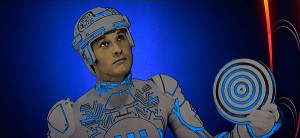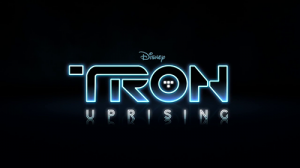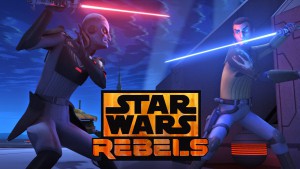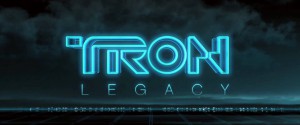Disney Deletes TRON 3: End of Line?
Post by Nicholas Benson, University of Wisconsin-Madison
In the wake of the news that Disney will not move forward with the (unconfirmed) plans to make a third TRON film, fans of the TRON universe have started a petition in favor of the movie, while journalists have more predictably started speculating as to why Disney has decided to cancel production. Both the fan-lead petition and the speculative articles reduce the decision to a financial one. These views, as with most popular opinions about the industry, fail to consider the complex history Disney has with the TRON property. Given that history, Disney’s indecision about the property, in combination with their recent failed attempts to expand the Disney live-action brand (John Carter (2012), The Lone Ranger (2013), and Tomorrowland (2015)), rather reflects the company’s inability to reconcile the disconnect between their branded properties and their acquired ones so they may be more explicitly associated with the Disney brand.
Currently, Disney has two financially successful properties in Marvel and Star Wars. Although these two properties bring in money from the male demographics that Disney has long sought after, in the mind of the average audience member neither of those properties are likely seen as truly belonging to Disney—for example, my guess is it will likely be a long while before you see a poster that says Disney’s The Force Awakens. The italic Disney signature doesn’t even appear above the Star Wars Rebels logo, a series made by and for the Disney channel. Due to Disney’s lack of brand presence within these films, the success of these franchises does little to contribute to the Disney brand in and of itself, independent of the acquired properties. On the other hand, the content that Disney is generating that is seen as truly Disney entertainment, such as the recent live action Cinderella, or the upcoming live action Beauty and the Beast, is perceived as being either for girls, children, or Disney fanatics.
 TRON, on the other hand, is a property that is perpetually stuck somewhere in between those two Disney spheres. Aesthetically and thematically it feels more like Star Wars or The Avengers. The dark corners of the grid have more in common with Star Wars’ Coruscant than Alice’s Wonderland. Yet, TRON is actually an original Disney property like Cinderella or Beauty and the Beast and therefore carries with it the Disney seal of fantasy and wonder. The original TRON does not resonate with Disney fans, nor does it really resonate with sci-fi fans: it is a cult classic, one that a very select group of mainly programmers and computer aficionados hold to be something of an inspiration.
TRON, on the other hand, is a property that is perpetually stuck somewhere in between those two Disney spheres. Aesthetically and thematically it feels more like Star Wars or The Avengers. The dark corners of the grid have more in common with Star Wars’ Coruscant than Alice’s Wonderland. Yet, TRON is actually an original Disney property like Cinderella or Beauty and the Beast and therefore carries with it the Disney seal of fantasy and wonder. The original TRON does not resonate with Disney fans, nor does it really resonate with sci-fi fans: it is a cult classic, one that a very select group of mainly programmers and computer aficionados hold to be something of an inspiration.
Despite their current reluctance to commit, Disney has—or had—big dreams for TRON. TRON has historically represented Disney’s desire to expand and grow its brand beyond family friendly entertainment to appeal to a broader audience. TRON came at a time when Disney was having an identity crisis and on the verge of financial collapse. The company sought to capitalize on the popularity and franchising success of sci-fi adventures brought on by the success of Star Wars. The original 1982 film tells the story of Kevin Flynn (Jeff Bridges) a young computer hacker who gets sucked into a computer. It goes without saying that TRON was hardly at home in the house that Mickey Mouse built, but that was exactly the point. Disney wanted to show they could do more than family friendly animation. Yet, despite their best efforts and a small cult following, the movie failed to have the cultural impact that Disney wanted.
It was thirty years before they gave TRON a second chance. Disney had found some success in live action films in the early 2000s with the Pirates of the Caribbean movies which resonated with both Disney fans (because of its origins as a Disneyland ride), and with general fans of action adventure movies (because it was good). TRON was certainly an attempt to not only keep that going but bring it to the next level. Disney fired up the franchise machine on all cylinders, and TRON: Legacy was released in 2010. Despite mixed critical reception, the sequel became a relative financial success making almost $400 million worldwide.
However, financial success was only a piece of what Disney was after with TRON. What they really wanted was what Lucasfilm had, a lucrative transmedia franchise with staying power that appealed to males of all ages. In the spirit of what Star Wars was doing with The Clone Wars, Disney produced the animated series TRON: Uprising for their network Disney XD. Although the series was well done and received fairly positive reviews, the ratings failed to meet expectations and the show was deemed a failure and canceled after one season. Soon after, Disney purchased Star Wars and the hype around TRON slowly died out. Rumors of a sequel never went away, and Disney still drew on the property from time to time. For example in Disney’s California Adventure a TRON-themed dance party continued nightly until mid-2012, and recently Disney put out two characters from Legacy as a digital exclusive for their Disney Infinity 2.0 iOS App, with plans to release physical versions of the figures with the upcoming Disney Infinity 3.0.
Disney is likely not done exploiting the TRON franchise. Their decision to officially announce the cancellation of a production that was never officially announced seems more like a buzz-generating tactic than a nail in the coffin. However, the real value of TRON is in its potential to be embraced by a male audience as a purely Disney branded product. While Disney’s current strategy of retreating into their back catalogue of animated classics and remaking them as live-action blockbusters might prove to be financially successful, it also further ties the Disney brand to traditional family values and separates it from the Marvel and Star Wars properties that it has recently purchased. Their hesitation to move forward with TRON 3 is symptomatic of their inability to find an appropriate strategy that bridges these disparate pieces of the company under one unified Disney brand.






Nicholas:
I like your overview of how the TRON franchise relates to Disney’s more recently acquired franchises. I think, however, that you’re missing the large extent to which Disney is co-branding Star Wars, especially in merchandise. Disney very early on declared its intention to co-brand Disney and Lucasfilm, more like Pixar than Marvel. (http://www.businessinsider.com/disney-lucasfilm-branding-2012-11).
For examples of how this strategy is being widely implemented, see the cover of the Star Wars Rebels: Spark of Rebellion DVD (http://img4.wikia.nocookie.net/__cb20140814063703/starwars/images/b/b2/SparkofRebellion.png), or the official merchandise packaging template for The Force Awakens merchandise (http://www.starwars.com/news/star-wars-the-force-awakens-products-to-arrive-on-force-friday-september-4).
There are indeed some strategic absences of Disney’s branding with the new film rollout — for example, I doubt a Disney fanfare will replace the old Fox one — so it will be interesting to see how this tension plays out.
First of all thanks for the constructive comment! I’m certainly working through some ideas here and appreciate the feedback.
The 2012 article clearly points to Disney’s desire to use the Star Wars name to push the Disney brand in a different direction. However, I really do not think it’s quite worked out for them yet. Putting the Disney name next to Lucasfilm isn’t doing anything for the Star Wars property. It could possibly help Disney be able to brand TRON differently in the future with trailers stating “from the company that brought you ‘Star Wars: The Force Awakens’, and ‘The Avengers’,” but for now I think Disney does not want TRON to be counted among ‘The Lone Ranger’, ‘John Carter’, and ‘Tomorrowland’, as yet another Disney bomb.
Admittedly, my analysis didn’t cover merchandise and I appreciate you bringing that to my attention. I know on Lego boxes the Disney logo is off to the right in the bottom corner on newer sets. I have been looking around at stores such as Target and Wall-Mart to see if Star Wars merchandise is located near Disney merchandise, and as far as I have seen it is not. I’d be interested to see where most people buy their Force Awakens merch.
Perhaps the biggest take away from their co-branding strategy is how carefully they seem to be putting the Disney and Star Wars logos together, Disney’s name is never centered above the logo, like it is on the TRON: Uprising logo or even on Pixar co-branded properties, instead it’s off to the upper right.
Thanks again for the response.
‘Tron’ was always Disney’s awkward attempt at cashing in on ‘Star Wars’ on their own terms “as a purely Disney branded product.” They tried once in the 1980s and it didn’t work. So, they tried again in 2010. Still, it didn’t work.
So, they gave up and just bought the SW franchise the first chance Iger had. They humored the idea of a 3rd installment, but doesn’t seem to be a serious one.
Anyway, saying that TRON’s “a property that is perpetually stuck somewhere in between those two Disney spheres [of Marvel and princesses]” is misleading, at best.
Jason, I do not believe that buying Star Wars really solved Disney’s branding issue, and I think their hesitance to move forward with TRON is evidence of that. You yourself have written about how Disney is beholden to its fan base, and I think that fan base still desires princess movies and nostalgic cartoons above all else from the Disney brand, making TRON a difficult property to manage: Perhaps not perpetually, but certainly currently.
Also, it’s worth noting that “Didn’t work” is a loaded phrase. Failure is objective. Compared to some of their recent forays into live action film ‘TRON:Legacy’ was a fairly big success globally for Disney. What failed was the cartoon series, and I would argue that was more important to the long term franchising goals of the company. Once they had Star Wars they quickly replaced the show with ‘Star Wars: Rebels’.
Sorry for the delayed response, and thanks for the input!